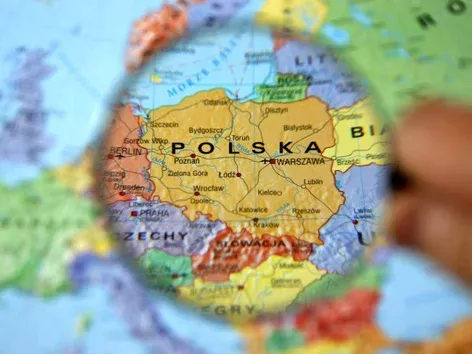Cost of living in Switzerland: rent, food, entertainment and healthcare

The standard of living in Switzerland is much higher than in most European countries. Find out more about the cost of renting a house, utilities, food and entertainment in the country
Switzerland is a country in the centre of Europe that attracts expats with its political and economic stability, beautiful landscapes, high salaries, relatively low taxes (compared to other Western European countries) and, of course, one of the highest quality of life in the world. There are currently 2.2 million expats living in Switzerland, accounting for 25% of the country's total population.
Four Swiss cities are among the top ten cities in the world's cost of living rankings compiled by Mercer for 2024 - Zurich (third place), Geneva (fourth place), Basel (fifth place) and Bern (sixth place). Zurich is more expensive to live in than Brussels, Munich and Paris.
Earlier we talked about the extension of temporary protection for Ukrainians in Switzerland until 2026.
However, it is worth knowing that recently the situation with obtaining protection for Ukrainians in Switzerland has become more complicated. In particular, the duration of consideration of applications for S status has increased significantly, and the number of refusals has increased significantly in recent months.
Read more about the reasons for this and what refugees from Ukraine can expect in the future here .
Long-term rental housing in Switzerland
Only 40% of the Swiss population owns their own property, the rest rents it. Therefore, it is more difficult to find decent and affordable housing here than in other European countries. Due to the high demand, the best apartments are rented with many requirements.
In small Swiss cities such as Lucerne, St. Gallen or Fribourg, renting a one-bedroom apartment costs between 850 and 1,300 euros per month. Two-bedroom apartments in these cities can be rented for between €1,200 and €1,700. These prices may vary depending on the specific location, condition of the property and available amenities.
In turn, in large cities such as Zurich, Geneva or Basel, rental prices are much higher. A one-room apartment in the central districts of these cities costs between €1,600 and €2,500 per month. Renting a two-bedroom apartment in prestigious areas can reach €2,700 to €3,700. It is worth noting that prices may be lower in the suburbs or less popular areas of large cities.
As for utilities, their cost in Switzerland in 2024 is on average 250 - 350 euros per month for a medium-sized apartment. This amount includes electricity, heating, water and garbage collection. However, the exact cost may vary depending on the size of the dwelling, the number of occupants and individual consumption.
The monthly cost for garbage collection depends on the volume of bags and varies slightly between municipalities. In Switzerland, recycling is taken very seriously and local councils have strict rules. Breaking them can result in a large fine or even a two-day stay in the local jail.
It is important to note that in many cases, tenants in Switzerland are required to pay an additional deposit, which is usually equal to three months' rent. In addition, some utilities may be included in the rent, so potential tenants are advised to carefully read the terms of the lease agreement.
To find out what types of residence permits are available to foreigners in Switzerland and what are the ways to obtain citizenship, please follow the link.
How to rent an apartment in Switzerland?
The most popular websites for finding accommodation for rent in Switzerland:
- ImmoScout24;
- Homegate;
- Comparis;
- Flatfox;
For a successful move and avoidance of troubles, it is worth contacting specialists. The lawyers of Visit Ukraine provide full support and advice on visa and migration issues to successfully resolve any nuances.
Don't want to miss important updates and useful materials? Subscribe to our weekly newsletter!
Food prices in Switzerland
Food in Switzerland is of very high quality. However, their cost is much higher than the average price in Europe. Switzerland is world famous for its chocolate and cheese.
There are several supermarket chains in the country. Among them are the Swiss chains Migros and Coop, with Coop being about 10% more expensive than Migros. Migros is very popular because most of its products are from domestic producers. The cheapest chains are Lidl and Aldi.
The current prices for basic food in Switzerland in 2024 are as follows: a litre of milk costs about 2.5 euros, bread costs 4-5 euros, a dozen eggs costs 6.5 euros, a kilo of chicken costs 27 euros, a kilo of cheese costs 19-27 euros, and a kilo of apples costs 3-4 euros. The price of a kilogram of rice is about 4-5 euros, and a kilogram of pasta about 3 euros.
For a family of three, the monthly food costs in Switzerland in 2024 are on average between 800 and 1,300 euros. This amount includes a basic set of products, including fruit, vegetables, meat, fish, dairy products and groceries. However, actual costs can vary depending on the family's eating habits, where they live and the choice between premium and budget brands of food.
Switzerland is currently facing a significant labour shortage, and many companies are trying to attract skilled workers in various fields. The country is known for its high salaries and quality of life, which makes it attractive to expats.
Read moreabout the labour market in Switzerland, salary levels, how to apply for a job and other important details here.
Cafes and restaurants: prices in Switzerland
As for a dinner in a restaurant, in 2024 in Switzerland, it will cost an average of 30 to 60 euros per person in a mid-priced restaurant. This amount includes the main course and a drink. In more sophisticated restaurants, the cost of dinner can easily exceed 150 euros per person. You can eat in fast food places for 20-25 euros, but this is not considered a typical ‘dinner in a restaurant’ in the Swiss sense.
In the previous article, we talked about the top 8 places in Switzerland that are definitely worth visiting.
Cost of living in Switzerland: travel prices
A one-way ticket for short trips within the city costs about 3.5-4.5 euros. For longer journeys or trips between cities, the price can vary from 10 to 55 euros or more.
Many Swiss and permanent residents prefer to buy travel tickets. The most popular is the so-called GA (General Abonnement) ticket, which allows unlimited travel throughout the country on most types of public transport. In 2024, an annual GA pass for adults in the second class costs about 4,000 euros.
For those who use public transport less regularly, there are half-price passes (Halbtax), which cost around €200 per year and entitle you to a 50% discount on most tickets.
In larger cities such as Zurich, Geneva or Bern, monthly passes are also popular, costing between €80 and €100 depending on the coverage area.
The cost of fuel in Switzerland in 2024 varies depending on the type of fuel and region. Grade 95 petrol costs an average of €2 per litre. Diesel fuel is slightly more expensive, with prices starting at €2.5 per litre. These prices can vary throughout the year depending on global oil prices and local economic factors.
Keep in mind that a Green Card is a prerequisite for legal driving in Switzerland. On the Visit Ukraine portal, you can apply for a Green Card online from a licensed insurer. Packages are available for different periods from 15 days to 1 year for cars and trucks, trailers and semi-trailers for trucks, as well as motorcycles and scooters.
Healthcare
The cost of a family doctor's examination in 2024 in Switzerland is approximately €120-160 for a standard consultation. This amount may be higher if additional examinations or procedures are carried out during the visit. It is important to understand that this amount is paid by the patient and then partially reimbursed by the insurance company in accordance with the terms of the insurance policy.
As for cold medicines, their cost can vary significantly depending on the brand and composition of the drug. A basic set of cold medicines, which includes antipyretics, anti-inflammatory drugs and cough medicines, can cost between 20 and 50 euros.
Basic health insurance is compulsory for all Swiss residents. In 2024, the average cost of basic health insurance for an adult is approximately €400 per month. However, this amount can vary considerably depending on the canton of residence, the insurance company chosen and the specific insurance plan.
Take care of your health while travelling to Europe with health insurance from Visit Ukraine, which guarantees reliable protection. Ensure your peace of mind while travelling.
How much money do you need to live in Switzerland: monthly budget
A family of three in Switzerland requires a significant amount of money to live comfortably, which varies depending on where you live and your lifestyle.
According to the latest data for 2024, to ensure an average standard of living, a family of three needs to count on monthly expenses of between 6,500 and 8,500 euros. This amount includes all basic needs and some entertainment, but can vary significantly depending on the city and personal preferences.
Just a reminder. Back in 2023, the Swiss authorities announced their intention to integrate Ukrainians into the local labour market, but no actual decisions were made until September 2024. You can read more about the situation with the employment of refugees in Switzerland and what changes to expect by 2025 here.
Want to know more? Read the latest news and useful materials about Ukraine and the world in the News section.
Our recommendation for a safe and comfortable trip:
Visit Ukraine Insurance - insurance for a safe stay abroad without unnecessary expenses;
Green Card - compulsory car insurance for traveling abroad;
Visit Ukraine Tickets - book tickets for buses, trains, and airplanes to/from Ukraine and between cities around the world;
Private Lawyer service - professional legal support on visa and migration issues;
Visit Ukraine Merch - buy patriotic clothing and accessories with worldwide delivery.
© 2018-2024, Visit Ukraine. Use, copying or reprinting of materials on this site is permitted only with a link (hyperlink for online publications) to Visit Ukraine.
All rights reserved.
Recommended articles
3 min
Entry rules
America for Ukrainians: emigration to the USA
Moving to the United States is a dream move for many people. However, the process of emigration is fraught with many pitfalls, which is why it is necessary to research all the nuances in advance. Read more about emigration to the USA in 2024, visa requirements and other important issues
16 Oct. 2024
More details2 min
For refugees
Poland's new migration strategy towards refugees and migrants: what will change
Poland's new migration strategy aimed at regulating the flow of foreigners reflects the profound changes that await both labor migrants and refugees. Find out more about Poland's emphasis and the new mechanisms it is creating to control migration processes
17 Oct. 2024
More details2 min
Travel
What to take with you when travelling with a small child: tips for parents
Travelling with a child, especially for the first time, requires a lot of preparation and careful planning. Find out more about how to pack a suitcase for a trip with a baby, what things you need to take with you, and other important nuances
19 Oct. 2024
More details3 min
Popular
Halloween 2024: which European cities are worth visiting during the most mystical autumn holiday
Halloween is one of the most mystical holidays of the calendar year. Atmospheric pumpkins with candles, scary stories and children in wheelchairs dressed as ghosts are more common in European countries than in Ukraine. Find out in which European cities Halloween is celebrated on a large scale and in an original way and create your own itinerary for this October
18 Oct. 2024
More details

